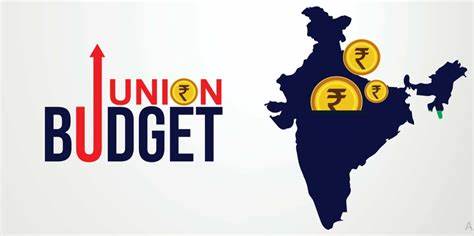“Union Budget 2025-26: Major Tax Simplifications and Economic Reforms Expected”.
The Union Budget 2025-26, scheduled to be unveiled on February 1, 2025, has the nation abuzz with expectations. The Federation of Indian Chambers of Commerce and Industry (FICCI) has submitted an extensive list of recommendations to Finance Minister Nirmala Sitharaman, emphasizing transformative changes to simplify India’s tax regime, enhance workforce inclusivity, and promote sustainable growth and infrastructure development.
In a meeting with the Revenue Secretary earlier this year, FICCI outlined its priorities, urging the government to focus on ease of compliance in direct and indirect taxation and reducing litigation burdens. Among the proposals under consideration, the prospect of income tax relief for individuals earning up to ₹15 lakh per annum has caught the attention of millions in the salaried class. This potential adjustment could offer significant financial relief, bolstering household incomes and economic participation.
A key aspect of the budget discussions centers around the rationalization of India’s TDS (Tax Deducted at Source) and TCS (Tax Collected at Source) frameworks. FICCI has long advocated for a streamlined tax system to enhance compliance and reduce complexity for businesses and individuals alike. A major recommendation is the consolidation of the current multi-tiered TDS/TCS rates into a simpler two- or three-tier structure. Such a move could minimize disputes, improve clarity, and foster a business-friendly environment. There is also a push to eliminate TDS/TCS on transactions already subject to GST, as this information is comprehensively captured in GST filings. Simplifying processes by leveraging existing data sources could reduce redundant paperwork and further ease compliance burdens.
Surveys conducted by leading firms like Deloitte underscore public demand for simpler tax returns and streamlined deduction processes. For instance, the issuance of Form 16A could potentially be phased out, given that comprehensive transaction data is already accessible via Form 26AS and AIS. This proposal aims to align tax systems with technological advancements, making them more intuitive and user-friendly.
On the matter of dispute resolution, FICCI’s recommendations highlight the importance of setting up an Independent Dispute Resolution forum. Such a body, staffed with retired Supreme Court and High Court judges, tribunal experts, and seasoned professionals, would expedite the resolution of direct tax disputes, ensuring fair and time-bound decisions.
Women’s participation in the workforce is another focal point in FICCI’s proposals. To address challenges faced by working women, particularly in manufacturing sectors, the introduction of tax exemptions for daycare expenses has been suggested. By allowing deductions for expenses related to the care of children up to five years of age, the government could significantly ease the dual responsibilities of childcare and career. Further, FICCI recommends encouraging the use of Corporate Social Responsibility (CSR) funds to establish dormitories for female workers, particularly in rural and semi-urban areas, where such amenities could facilitate greater workforce participation.
Enhancing childcare infrastructure has also been identified as a critical enabler. FICCI has proposed the formation of a statutory body to certify and regulate daycare centers, ensuring quality services that instill confidence among working mothers. Such measures could contribute to economic inclusivity and help bridge workforce gaps.
In addition to these tax and workforce-related measures, FICCI has called for sustained investments in infrastructure. A 15 percent increase in capital expenditure for FY26 has been recommended to maintain growth momentum. Inter-state platforms for reforms in land, labor, and power akin to the GST Council have been proposed to address systemic bottlenecks. Strengthening defense capabilities through prioritization of domestic procurement, investment in advanced technologies like AI and robotics, and promoting innovation also feature prominently in the industry body’s wish list.
On the healthcare front, FICCI advocates for an increase in public health spending to 2.5 percent of GDP. This would encompass incentivizing preventive healthcare measures and launching foundational literacy initiatives to boost education outcomes. Through these multi-faceted proposals, the industry hopes for a transformative Union Budget 2025-26 that addresses the evolving needs of a dynamic economy while setting a sustainable path for the future.

